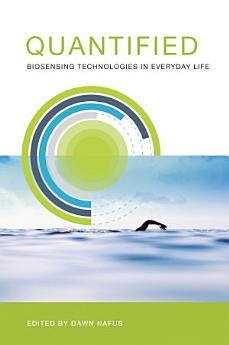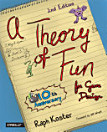Quantified: Biosensing Technologies in Everyday Life
អំពីសៀវភៅអេឡិចត្រូនិកនេះ
Today anyone can purchase technology that can track, quantify, and measure the body and its environment. Wearable or portable sensors detect heart rates, glucose levels, steps taken, water quality, genomes, and microbiomes, and turn them into electronic data. Is this phenomenon empowering, or a new form of social control? Who volunteers to enumerate bodily experiences, and who is forced to do so? Who interprets the resulting data? How does all this affect the relationship between medical practice and self care, between scientific and lay knowledge? Quantified examines these and other issues that arise when biosensing technologies become part of everyday life.
The book offers a range of perspectives, with views from the social sciences, cultural studies, journalism, industry, and the nonprofit world. The contributors consider data, personhood, and the urge to self-quantify; legal, commercial, and medical issues, including privacy, the outsourcing of medical advice, and self-tracking as a “paraclinical” practice; and technical concerns, including interoperability, sociotechnical calibration, alternative views of data, and new space for design.
Contributors
Marc Böhlen, Geoffrey C. Bowker, Sophie Day, Anna de Paula Hanika, Deborah Estrin, Brittany Fiore-Gartland, Dana Greenfield, Judith Gregory, Mette Kragh-Furbo, Celia Lury, Adrian Mackenzie, Rajiv Mehta, Maggie Mort, Dawn Nafus, Gina Neff, Helen Nissenbaum, Heather Patterson, Celia Roberts, Jamie Sherman, Alex Taylor, Gary Wolf
អំពីអ្នកនិពន្ធ
Adrian Mackenzie is Professor of Technological Cultures in the Department of Sociology at Lancaster University and the author of Wirelessness: Radical Empiricism in Network Cultures (MIT Press).
Maggie Mort is Reader in the Sociology of Science, Technology, and Medicine in the Department of Sociology and Division of Medicine at Lancaster University in the UK.
Helen Nissenbaum is Professor of Media, Culture, and Communication and Computer Science at New York University, where she is Director of the Information Law Institute.
Gina Neff is Associate Professor of Communication and Sociology and a senior data scientist at the University of Washington. She is the author of Venture Labor: Work and the Burden of Risk in Innovative Industries (MIT Press).
Geoffrey C. Bowker is Professor and Director of the Evoke Lab at the University of California, Irvine. He is the coauthor (with Susan Leigh Star) of Sorting Things Out: Classification and Its Consequences and the author of Memory Practices in the Sciences, both published by the MIT Press.




